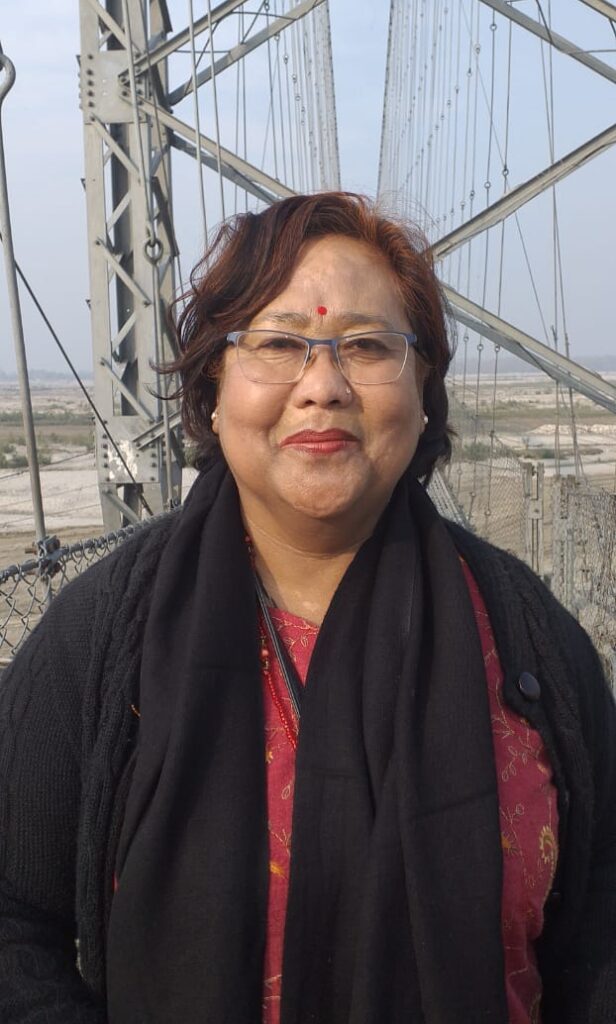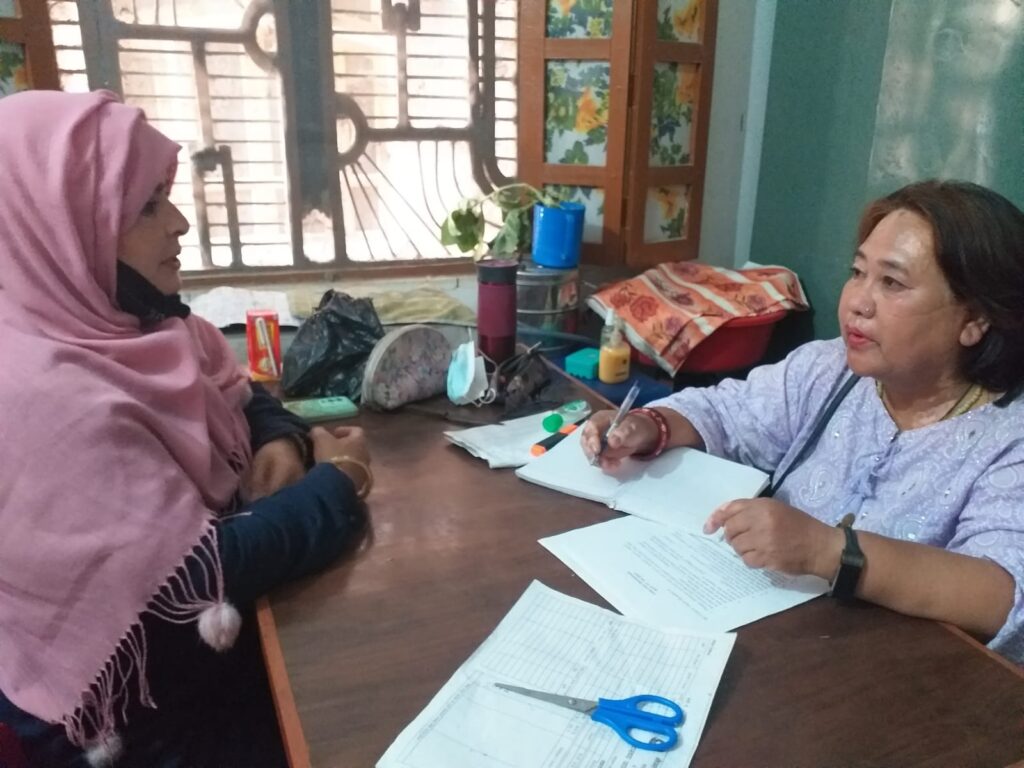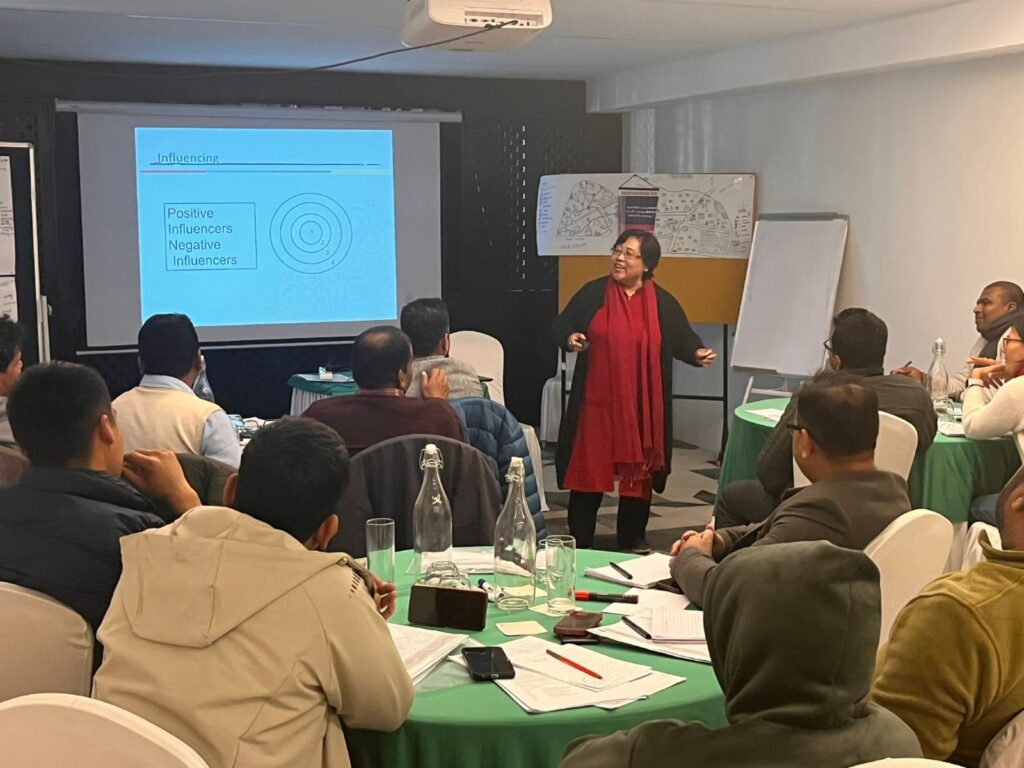Meet the expert: Interview with Shova Lama

Shova Lama, of Nepal, is a vital WI-HER team member with decades of experience in community engagement and gender equity and social inclusion (GESI) mainstreaming and integration. With her wealth of knowledge in effectively working with and in communities, especially marginalized ones too often missed, she is an asset to the USAID Act to End Neglected Tropical Diseases (NTDs) East (Act | East) team in Nepal. In this interview with WI-HER, learn from her history and experience working in GESI and why it is critical to the future of global development to focus on GESI from the beginning of a project.
Tell us about yourself.
I am an expert in mainstreaming GESI perspectives across program activities of the government of Nepal (GON) and various projects; research; and monitoring of GESI integration in organizational development and program outcomes.
I also excel at facilitating training at all levels, specifically in GESI, leadership development, NTDs, anti-human trafficking and safe migration, child protection, peace education, and early childhood development and advocacy.
What do you enjoy the most about your work?
I enjoy working with talented people from different backgrounds at different levels and collaborating with them to solve problems. I will cite one example: I worked with 70 coalition members from different organizations to fight against human trafficking. As a result, the Government of Nepal formally declared 20 Bhadra (September 6) the National Day against Human Trafficking.
Why have you devoted your career to development in Nepal?
I myself belong to the Tamang ethnic group, a marginalized group, and with a strong passion for enabling economic opportunity and ensuring women’s and children’s rights, I devoted my career to development in Nepal. I started my career in a community in Nuwakot district and led the overall program management, planning, budgeting, and implementation of an early childhood and care program, and formed and strengthened women saving groups. This early exposure to working with women in rural areas and identifying and addressing specific issues—such as illiteracy, lack of access to information, lack of awareness, lack of self–confidence, economic dependency of women on men, women spending more time on household tasks and agricultural activities—that impacted their wellbeing and quality of life served as a foundation of my career.

Another turning point in my career came when I completed a two-year training program in Gender Relations Analysis, which taught me how to apply gender perspectives in international development. I then worked as a Women Child Impact Coordinator for the Nepal and Bhutan program and Family and Community Empowerment Training Systems (FACETS) Coordinator. The skills I acquired from these experiences have led me to where I am now. It taught me how to take the lead on incorporating gender perspectives/sensitivities into programs and develop administrative personnel policies that are GESI-sensitive and enhance organizational systems.
How have you seen the development space change throughout your career? How has gender equity type work evolved?
Throughout my career, there has been a drastic change in the development space. Women’s literacy rates and girls’ education rates, especially in rural contexts, have increased. Women are now becoming community leaders and politicians and engaging in income generation/small entrepreneurship. Women are vocal and are affiliated with many informal groups at the community level. These changes, including improved female literacy rates and approaches taken by government programs and non-government projects on women empowerment and economic opportunity are really encouraging gender equity evolvement.
What is your vision for the next 10 years? What do you hope to achieve, or how do you expect the field you work in to evolve?

At the community level, social and cultural trends, as well as poverty, have created multiple categories of marginalized and disadvantaged populations. Each population has its own distinct needs and priorities, and are highly context-specific, as GESI inequalities vary from community to community.
My vision for the next 10 years would be to further advocate for providing technical assistance to the GON and other stakeholders that is context and population-specific and not through a blanket approach. We can accomplish this together by providing evidence through GESI assessments, identifying GESI gaps, and identifying the needs and concerns of marginalized women. With more focus on addressing GESI from the outset of a project design, we can better focus on building local capacity to prepare evidence-based GESI responsive plans, effective implementation, and monitoring and evaluation, particularly targeting hard-to-reach communities and marginalized and disadvantaged populations. This will result in ensuring that women are truly enabled both through equal representation as well as more comprehensive decision-making and improved livelihoods.